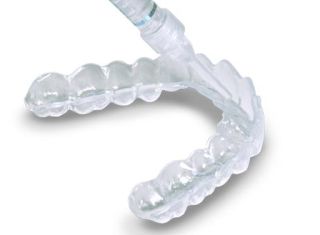How can I make my teeth whiter?
Bleaching or veneers are typically the best choice unless you have existing dental work. If you currently have crowns, you may have to have them replaced to whiten your smile. If you have bonding or tooth colored fillings, you may need to change them following bleaching.
Which bleaching method is the best?
If your teeth are receptive to bleaching, all methods will eventually lighten your teeth to a similar result, though, some methods may take longer than others. The in-office treatments offered by your dentist will give you the quickest result. The tray method will also whiten your teeth over a longer period of time (generally about 2 weeks).
Are there any reasons I shouldn't bleach my teeth?
Yes. You shouldn't bleach your teeth if your pregnant, nursing, or have any infections related to your teeth or gums. You might also consider avoiding bleaching if you have excessively sensitive teeth.
So, How long will the whitening last?
Most dentists will tell you the results will last between 1 to 2 years. However, some patients may not be that lucky because it depends heavily on what you eat and drink (and if you are a smoker). In most cases , though, it takes about 1-2 years before the stains become noticeable.
Will it hurt?
The majority of patients experience little to no discomfort or sensitivity following treatment. A very small percentage of patients may experience a minor dull 'ache' for a few days after whitening. It's a good idea to avoid hot or cold liquids/ foods for the first 24 to 48 hours if you are noticing any sensitivity.
What's the procedure?
In-office bleaching: Your dentist will first examine your teeth and gums to make sure that they are in good health and that you are a candidate for bleaching. Next, a material will be applied to protect your gums and isolate your teeth. As you relax in the chair, a whitening gel will be applied to your teeth and a light will be positioned to activate the gel. Within about an hour , patient's usually notice a dramatic result.
At-home bleaching: An impression is taken of your teeth. From this impression, custom-fitted clear trays are made. Your dentist will provide you with an overview of the instructions for use. Typically, the trays are worn for a few hours each day over 1-2 weeks.
